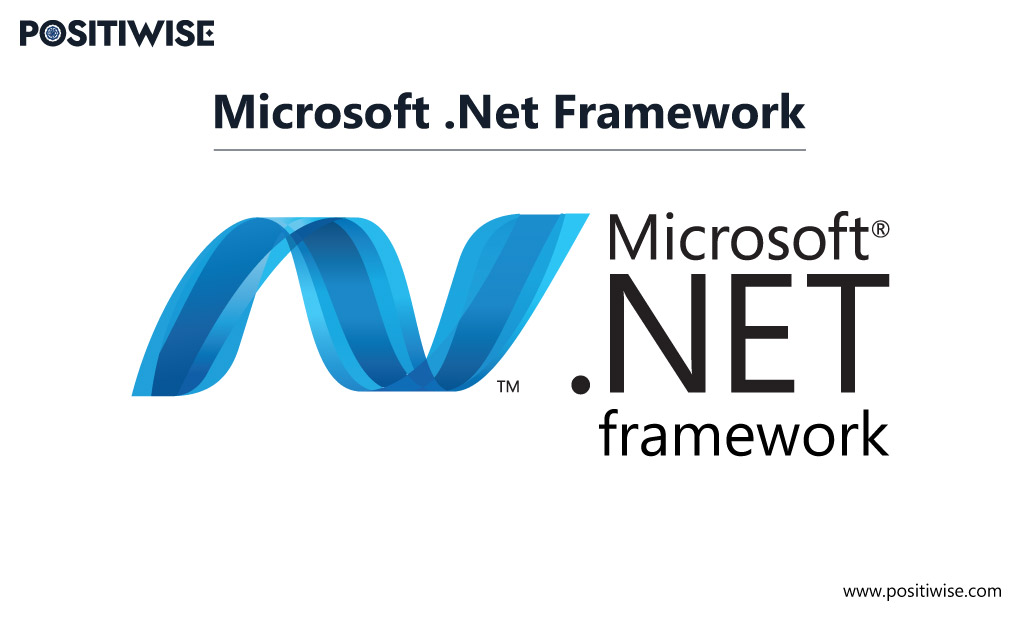Quick Overview:
.NET is the umbrella term for a family of programming languages. Microsoft developed .NET as an open, cross-platform platform with standard APIs that applications can use to communicate. This makes it quite simple for developers to create applications that run on different operating systems and platforms. A professional who engages with .NET is referred to as a .NET developer or a .NET programmer.
Their most common job is creating websites and web apps using Visual Studio, which is Microsoft’s IDE for developing .NET applications. Microsoft created the .NET Framework to make it easier for developers to build applications across multiple platforms. In addition to providing standard components like threading and Windows support, the compiler also includes features like LINQ. The outcome is a collection of high-quality tools that significantly simplifies software development compared to previous methods. Here, you will learn the importance of .NET developers and their skills.
What is .NET Development?
.NET is a standard software framework that provides developers with a powerful, flexible, and efficient toolkit for building applications. It provides various programming languages, libraries, and tools. Dot NET development is an umbrella term for creating software using the Microsoft .NET Framework. Microsoft developed this framework in response to several open-source projects that sought to create a more common language for building applications and services.
.NET Development is the process of developing software, including games, websites, and other applications for the Microsoft Windows and .NET platforms. .Net is a family of technologies that Microsoft develops. It offers developers a secure and easy way to create applications that run on multiple platforms and can access information from other computers on the network.
The .NET Framework collects developers’ libraries, tools, and other resources to create apps and services. The framework is available in several languages, including C#, Visual Basic .NET, and Java. The .NET Framework is a collection of reusable software components that allow developers to build more powerful applications than was previously possible. The framework incorporates classes and interfaces usable in any application, irrespective of the programming language employed.
Importance of .NET Development
The importance of .NET Development cannot be overemphasized. With .NET technology, you can easily and quickly develop your website or application without any technical knowledge. You need to spend some time and money to get started in this field, but there are many benefits associated with it:
- Best Architecture
- High Security and Reliability
- Flexible
- Easy Access
Best Architecture
- The .NET Framework provides the best architecture for developing applications. It has built-in components like web services, database connectivity, web servers, desktop applications, etc. The framework is supported by languages like C# (C Sharp), VB.NET (Visual Basic), etc. The framework supports multi-threading, making it easier to handle concurrency issues while developing a program.
- The architecture of a system consists of different parts, such as hardware, software, and data. The architecture of a system plays an essential role in determining how well it can systematically handle various tasks. A good architecture will help you achieve better results in your project so that you can succeed at the end of your project or project completion date.
High Security and Reliability
- The .NET Framework provides a high level of security in terms of authentication and authorization. Security is something that every business owner wants for their company, but unfortunately, not all businesses think about this aspect when they start their projects as they tend to focus.
- It also provides enhanced security features like data encryption using the Secure Socket Layer (SSL) protocol, which ensures that no one can access data stored on the server without an established connection between the client and the server.
Flexible
- .NET is a flexible programming language that allows developers to build applications using their preferred programming languages and tools. It provides high performance and scalability while maintaining excellent flexibility. The language will enable developers to write code in the most appropriate language without having to choose between them. This simplifies the task for developers to develop software according to their needs.
- .NET is also used in a wide range of applications, making it one of the most commonly used languages in the world today. It is easy to access, and new developers are learning it daily. .NET is a flexible and easy-to-use development platform. It allows the developers to add functionality without modifying the existing code.
Easy Access
- .NET Development provides easy access to the latest technologies and tools from Microsoft, thereby reducing the barriers for developers to start coding in .NET immediately after learning new technologies and tools. The availability of open-source frameworks makes it easy for developers to integrate with third-party products and create custom solutions based on their requirements.
- .NET framework allows developers to access all databases, servers, web services, and other resources through the same API. The APIs are straightforward, so there is no need for developers to learn a new language or framework like Java. The .NET framework also provides an easy way for developers to create real-time applications that can communicate with other applications. Applications written in .NET can access data on any computer on the internet.
What does .NET Developer do?
A .NET developer builds applications using the .NET framework and programming languages like C#, VB.NET, F#, etc. Here are some of the key responsibilities and duties of a .NET developer:
- Design, build, test, and maintain .NET-based applications (web, desktop, mobile, games, etc.) using .NET languages and frameworks like ASP.NET, ADO.NET, Windows Forms, WPF, etc.
- Write clean, scalable, and maintainable code using .NET best practices and design patterns.
- Integrate applications with databases like SQL Server, Oracle, etc., and web services using technologies like ADO.NET, LINQ, and Entity Framework.
- Debug, test, and troubleshoot .NET applications to ensure functionality and performance meet requirements.
- Collaborate with business analysts, UI/UX designers, etc., to understand business requirements and develop technical solutions.
- Research and evaluate new .NET technologies, frameworks, languages, runtimes, etc., to use in development.
- Write technical documentation like API references, user guides, release notes, etc.
- Participate in code reviews and provide feedback to improve code quality, security, and performance.
- Support and maintain existing .NET applications, fix bugs, and improve performance.
Hence, a .NET developer builds, tests, debugs, maintains, and supports .NET-based software applications using C# and .NET languages and frameworks. Their primary responsibility is to write clean, well-designed, and efficient code to deliver robust .NET solutions.
.NET Framework vs .Net Core – Difference
In this article, learn about the differences between .NET Framework and . NET Core.
Why Do You Need Professionals for .NET Development?
You probably already know that software development is essential. It would be best if you had professional .NET developers because it’s not something you can learn on your own. You’ll need expertise and help if you want to get through the process of creating new software applications. NET.
In general, professional software developers are the ones who understand how to use the tools and technologies that make up this technology stack. They also have a good idea of how those tools work together, which means they can write code that fits with the rest of the program so that everything works properly as part of an overall project.
A professional .NET developer can create an entire program from beginning to end or piece together existing components into one complete application. Sometimes they will use open-source software like J2EE (Java 2 Enterprise Edition) or PHP applications that have been customized to fit your needs. In other cases, he might write custom code based on his design ideas or his clients.
Hire .NET developers can take care of all aspects of the project from start to finish without any issues or mistakes occurring along the way. This will ensure that everything goes according to plan, resulting in an excellent final product for everyone involved in making it happen!
Build Your Business with Custom .NET Application Development Services
Take your business online with custom ASP.NET app development services. Our top .NET developers deliver secure, scalable web applications to grow your enterprise business.
Conclusion
.NET Development is the key to success in this competitive world. It has enabled companies to compete with their rivals. .NET is a platform for developing applications and websites that run on Windows, Linux, or Mac platforms. The .NET framework is an open-source framework that provides developers with tools and services to create web applications, mobile applications, and desktop software.
.NET Development is a fundamental and popular technology in the current market. .NET is a framework developed by Microsoft that provides several features to its users. .NET Development is one of the most powerful technologies used to create websites, applications, and web services. It would be best if you had a professional team so that they can efficiently handle the project and make sure that everything goes smoothly. If not, this could lead to delays and even problems later.
Expert in Software & Web App Engineering
Parag Mehta, the CEO and Founder of Positiwise Software Pvt Ltd has extensive knowledge of the development niche. He is implementing custom strategies to craft highly-appealing and robust applications for its clients and supporting employees to grow and ace the tasks. He is a consistent learner and always provides the best-in-quality solutions, accelerating productivity.






